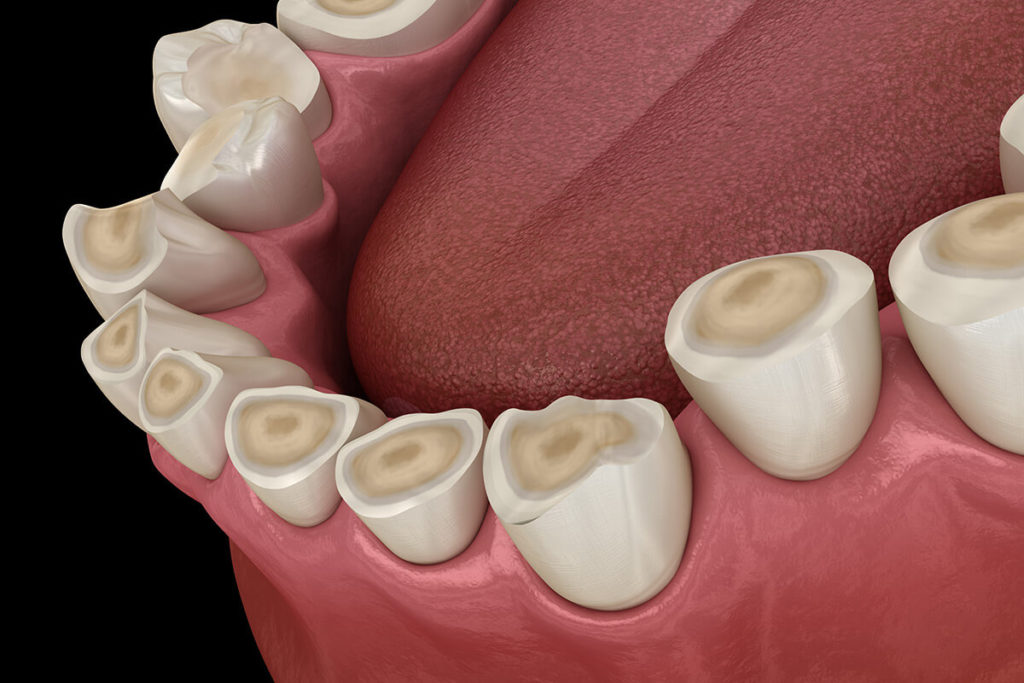Teeth grinding, or bruxism, is a common condition that can affect your oral health in various ways. One of the most significant consequences of chronic teeth grinding is its connection to temporomandibular joint (TMJ) disorders. The TMJ is responsible for connecting your jaw to your skull, and when grinding your teeth becomes a habitual issue, it can put excessive strain on this joint, leading to pain, discomfort, and other dental problems. In this article, we’ll explore how Teeth Grinding Treatment and TMJ are connected, the symptoms of TMJ disorders, and the best ways to manage both conditions.
What Is TMJ, and How Does It Relate to Teeth Grinding?
The temporomandibular joint (TMJ) is the hinge that connects your jawbone to your skull, located just in front of your ears. This joint is essential for all jaw movements, including chewing, speaking, and yawning. When bruxism occurs, it can place unnecessary stress on the TMJ, potentially causing it to malfunction and leading to a range of symptoms.
- Excessive pressure: Teeth grinding puts pressure on the TMJ, leading to inflammation and pain.
- Misalignment: Chronic grinding can cause the teeth to misalign, which further strains the TMJ.
- Movement issues: Over time, the constant pressure from grinding may affect the smooth movement of the joint, resulting in stiffness and discomfort.
Understanding the connection between bruxism and TMJ disorders can help you take proactive steps to manage both conditions and protect your oral health.
Symptoms of TMJ Disorders:
TMJ disorders can manifest in a variety of symptoms, some of which overlap with the effects of teeth grinding. Recognizing the signs early can help you get the treatment you need before the condition worsens.
- Jaw pain: A common symptom of TMJ disorders is pain or tenderness in the jaw, especially when chewing or speaking.
- Clicking or popping sounds: Many people with TMJ disorders experience clicking, popping, or grinding sounds when they move their jaw, often during chewing or speaking.
- Limited jaw movement: TMJ issues can make it difficult to fully open or close your mouth, leading to discomfort when eating or yawning.
- Headaches: The tension caused by TMJ disorders often leads to chronic headaches or migraines, which may be felt in the temples or around the eyes.
- Ear pain: Since the TMJ is located near the ear, some individuals with TMJ disorders experience earaches or a sensation of fullness in the ears.
If you experience any of these symptoms, it’s important to consult a dentist or healthcare provider to determine if teeth grinding is contributing to TMJ dysfunction.
How Teeth Grinding Contributes to TMJ Pain?
Teeth grinding causes a range of mechanical issues that can affect the TMJ and lead to pain. When you grind your teeth, the pressure placed on your jaw muscles, teeth, and the TMJ itself can lead to a vicious cycle of discomfort.
- Overuse of jaw muscles: Teeth grinding often leads to excessive contraction of the jaw muscles, which can cause tightness and discomfort in the jaw and surrounding areas.
- Inflammation: The stress on the TMJ from grinding can cause inflammation, leading to pain, stiffness, and reduced range of motion in the joint.
- Wear on the teeth: The grinding motion also wears down tooth enamel and can misalign teeth, making it more difficult for the TMJ to function properly.
- Increased pressure: The constant grinding motion exerts continuous pressure on the TMJ, contributing to long-term damage and dysfunction if not addressed.
The more you grind your teeth, the more strain is placed on the TMJ, which can lead to worsening symptoms and more complicated dental issues over time.
Effective Ways to Manage Teeth Grinding and TMJ Disorders:
Managing teeth grinding and TMJ disorders often requires a multi-faceted approach. Here are some treatment options to consider for reducing symptoms and preventing long-term damage.
- Nightguards: One of the most effective ways to manage teeth grinding is by wearing a custom nightguard. This device creates a barrier between the teeth, preventing direct contact and reducing the pressure placed on the TMJ during sleep.
- Stress management: Since stress is a primary trigger for teeth grinding, finding ways to manage stress can help reduce the frequency of grinding episodes. Techniques such as meditation, yoga, and deep breathing exercises are beneficial for relaxation.
- Physical therapy: Physical therapy for TMJ can help improve jaw mobility and relieve pain. Exercises and techniques designed to stretch and relax the jaw muscles may reduce muscle tightness and improve joint function.
- Medications: In some cases, doctors may prescribe muscle relaxants or anti-inflammatory medications to reduce pain and muscle tension associated with TMJ disorders.
By combining these treatments, you can alleviate the symptoms of both teeth grinding and TMJ disorders while preventing further damage to your oral health.
Lifestyle Changes to Reduce Bruxism and TMJ Strain:
Certain lifestyle adjustments can complement medical treatments and help prevent teeth grinding and TMJ pain. These changes can reduce the impact of bruxism on your jaw and improve overall well-being.
- Avoid stimulants: Reducing your intake of caffeine and alcohol, especially in the evening, can help prevent muscle tension and decrease the likelihood of grinding at night.
- Establish a bedtime routine: Creating a relaxing bedtime routine can help ease stress and promote better sleep. Avoiding screen time, incorporating relaxation techniques, and practicing good sleep hygiene can all be beneficial.
- Be mindful of your posture: Maintaining proper posture, especially while sitting or standing, can reduce tension in the jaw and neck muscles, which may help alleviate TMJ-related discomfort.
- Eat soft foods: If you experience TMJ pain, try consuming softer foods that don’t require much chewing. This can help minimize strain on your jaw muscles and joints.
Adopting these simple lifestyle changes can make a significant difference in reducing the symptoms of bruxism and TMJ disorders.
When to See a Dentist or Specialist?
If you’re experiencing symptoms of TMJ disorders or suspect that teeth grinding is affecting your jaw and teeth, it’s important to seek professional care. A dentist or TMJ specialist can help diagnose the issue and recommend appropriate treatment.
- Tooth wear: If you notice signs of worn-down teeth, cracks, or enamel erosion, a dentist can assess the severity of the damage and provide restorative treatments.
- Jaw pain or dysfunction: If you’re experiencing persistent jaw pain or difficulty moving your mouth, a dentist or TMJ specialist can evaluate your condition and offer targeted therapies.
- Headaches and ear pain: Chronic headaches or earaches can be a sign of TMJ issues, and a dentist can help determine if bruxism is the cause and provide relief.
Seeking professional help early can prevent further damage to your teeth and jaw and improve your quality of life.
Conclusion:
Teeth Grinding and TMJ disorders are closely linked, with one often exacerbating the other. Bruxism can put excessive strain on the temporomandibular joint, leading to pain, discomfort, and long-term dental problems. Recognizing the symptoms of both conditions and taking proactive steps to manage them is essential for protecting your oral health. From nightguards to stress management and physical therapy, there are many effective treatments available. By combining these approaches and seeking professional care when needed, you can reduce the impact of teeth grinding and TMJ disorders and preserve your smile for years to come.


